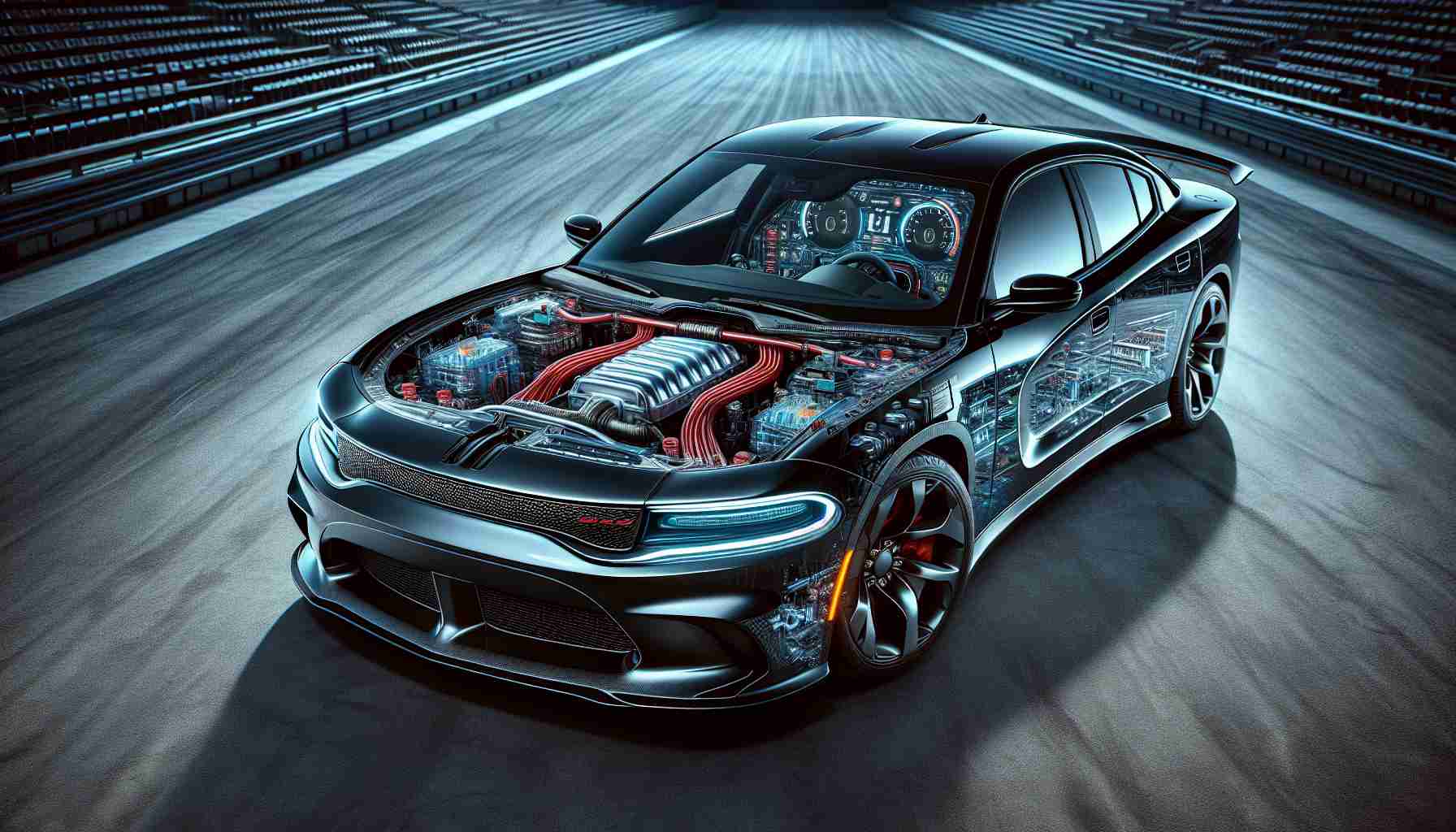The electric muscle car market faces fierce competition, and Dodge’s Charger Daytona seems to be caught in a pricing dilemma. With starting prices of $57,995 for the R/T model and $64,995 for the Scat Pack, prospective buyers are weighing the value of this electric powerhouse against similar options. Although it boasts an impressive maximum of 670 horsepower and accelerates from 0 to 60 mph in just 3.3 seconds, buyers can find comparable performance at lower prices from competitors.
For instance, the Tesla Model 3 Performance not only offers superior acceleration and range, it also comes at a lower base price than the Charger Daytona. Likewise, the Hyundai IONIQ 6, although less powerful, provides excellent range and affordability.
Dodge’s current EV strategy appears to need a significant overhaul. To better position itself in this evolving landscape, Dodge might consider implementing a price reduction of $5,000 to $7,000 and introducing more budget-friendly trims. This could attract a wider audience, particularly muscle car enthusiasts who appreciate the brand’s heritage.
To thrive, Dodge must emphasize its unique muscle car legacy while simultaneously streamlining costs. By doing so, it stands a chance to electrify the muscle car segment effectively, balancing performance and value in an increasingly demanding market.
The Future of Electric Muscle Cars
The emergence of electric muscle cars, particularly represented by models like the Dodge Charger Daytona, signals a transformative moment in the automotive landscape that extends beyond mere specifications and price points. As the world pivots toward sustainability, the implications for society and culture are profound. Electric muscle cars reframe traditional notions of performance, blending the nostalgic roar of classic vehicles with a greener, more energy-efficient future.
The global economy is likely to feel the reverberations of this shift. With the automobile industry projected to invest over $300 billion in electric vehicle development through 2030, companies that adapt and innovate stand to gain significantly. This could set off a competitive race—not just in technology, but also in job creation and manufacturing practices, reflecting a new standard in automotive engineering.
Moreover, the environmental aspect cannot be understated. Electric vehicles, when powered by renewable energy, can drastically reduce emissions compared to traditional combustion engines. Setting ambitious targets for carbon neutrality by 2035, as many car manufacturers have, could eventually lead to measurable reductions in urban air pollution and a more sustainable planet.
In terms of consumer trends, the demand for electric muscle cars will likely shape future models, as younger generations increasingly prioritize sustainability alongside performance. As enthusiasts gravitate toward electric alternatives, the industry must balance heritage with innovation, fostering a culture that respects the past while embracing the future. The success of brands like Dodge will hinge upon their ability to adapt to these evolving expectations while delivering robust performance that satisfies the muscle car ethos.
Can Dodge Ignite the Electric Muscle Car Market? Unpacking the Charger Daytona’s Pricing Dilemma
The Electric Muscle Car Landscape
As the electric vehicle (EV) market heats up, the competition among muscle car manufacturers is intensifying. Dodge’s Charger Daytona is positioned as a formidable contender with its potent blend of performance and electric power, yet it finds itself in a pricing conundrum that could hinder its market penetration.
Performance and Pricing Comparison
Starting at $57,995 for the R/T model and $64,995 for the Scat Pack, the Charger Daytona boasts an impressive 670 horsepower and can accelerate from 0 to 60 mph in just 3.3 seconds. However, when pitted against competitors like the Tesla Model 3 Performance, which offers superior acceleration and a longer range at a competitive price, the Dodge’s value proposition is called into question.
The Hyundai IONIQ 6, while not as powerful, stands out for its affordable pricing and remarkable efficiency, demonstrating that consumers have multiple options that deliver excellent performance without the steep price tag.
Pros and Cons of the Dodge Charger Daytona
Pros:
– Impressive Power: 670 horsepower offers exhilarating acceleration.
– Iconic Brand Heritage: Appeals to muscle car enthusiasts with a legacy of performance.
Cons:
– High Price Point: Significantly higher than some competitors with comparable performance metrics.
– Limited Options: Lacks budget-friendly trims that could attract a broader audience.
Potential Strategies for Dodge
To effectively capture a larger segment of the market, it may be beneficial for Dodge to reassess its pricing strategy. A proposed reduction of $5,000 to $7,000 could make the Charger Daytona more appealing to prospective buyers. Moreover, the introduction of more affordable trims could draw in enthusiasts who love the brand but find the current pricing out of reach.
Emphasizing Unique Features
Dodge must leverage its rich muscle car heritage while embracing the innovations of the electric vehicle space. This combination of nostalgia and forward-thinking could allow the brand to stand out in a saturated market. By offering features that resonate with muscle car fans, such as customizable driving modes and performance enhancements, Dodge can reinforce its identity in the evolving landscape of electric cars.
Trends in the Electric Muscle Car Market
The electric vehicle market is witnessing rapid growth, with increasing interest in performance-oriented EVs. Consumers are becoming more discerning, often seeking not only performance but also value and innovative features. Dodge’s ability to respond to these trends could dictate its success in the future.
Conclusion: Striking the Right Balance
For Dodge to thrive in the electric muscle car segment, it’s crucial to balance performance with competitive pricing. By revising its strategy to include more accessible price points and highlighting the brand’s legacy, Dodge can electrify its offerings and capture the hearts of a new generation of muscle car enthusiasts.
For more information on the latest in electric muscle cars, visit Dodge.
